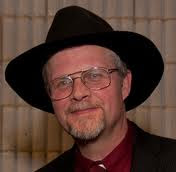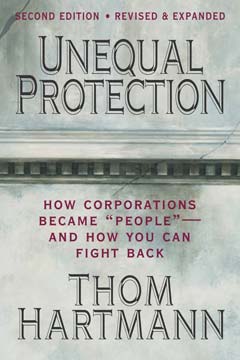“First I want to thank you for recommending “North and South” as I just finished watching it and liked it very much.”
>>>I don’t remember suggesting that to you.
“Now to my response, thanks for telling me that your philosophy is ancient Judaism. I’m not super familiar with it but I have some idea.”
>>>To say that you are not super familiar with it, is to say that you have not read the bible. Interesting that you demand I do so much study when you have not read the fundamental religious book of mankind.
“It was my understanding that Augustine was the first to take Plato’s “world of forms” (created about 2300 years ago) and give them a personality. In other words, Augustine (in the 1200s AD)”
>>>What? Mam, Augustine lived in the 4th and 5th century CE.
“was the first to attribute Plato’s “world of forms” to a consciousness which became the Christian God. However, what you write here sounds very much like Augustine’s reification procedure, though much before Plato: “Knowledge in the philosophical sense was directly spoken by the creator [God]…there are also innate forms that all men possess being made in the image of the creator… The fact that human beings can communicate with each other and grasp abstractions and genus concepts proves [Innate forms] exist…”
>>>Sorry you didn’t make the connection to Augustine from what I said.
“You may be asking what could be a scientific and not a philosophic question, but I can answer broadly philosophically. A sensation is the name we give to a human being contacting reality via one of his five senses.”
>>>You are confusing denotation with connotation and you are asserting a tautology.
“A perception is an integration of sensations that is processed by the human mind.”
>>>How does one know when one has validly integrated his sensations?
“Abstract ideas or concepts are an integration of percepts, processed by a human mind, into groupings selected by common denominators.”
>>>By percepts are you referring to memory images? Now can it be proved that all men have remaining images? I can close my eyes and “see” the face of my family members. I can close my eyes and picture my bedroom. I can “hear” a number of tunes voluntarily. However, I cannot voluntarily call up images of things I have smelled. I cannot call up images of things I have felt. I cannot call up things I have tasted. Even in my dreams I can only recall things I have seen and heard. By my own “experience” I can attest that I do not have all 5 types of images. Some have denied that they have images at all. British scientist Sir Francis Galton (1822-1911), rejected the idea that all men have imagery (Gordon H. Clark, Clark Speaks From The Grave [Jefferson, Maryland.: The Trinity Foundation, 1986], 23; See also Dr. Clark’s Lecture Empiricism).1 Moreover, this theory would require a method of determining a valid from an invalid inference. So the theory is a form of solipsism.
“Since you use this phrase often and unusually, I’m letting you know that when you say that something is ad hoc, I’m taking you to mean that as a synonym for being illogical. Correct me if
that’s not what you mean.”
>>>No. By ad hoc I am talking about baseless assertions. There are a number of articles online about ad hoc reasoning.
“Again on the issue of the reality of abstractions; There are many concepts that we cannot contact directly with our senses that we do not hold as in any way weak or tenuous, i.e., marriage, government, freedom, tyranny, etc. Rand’s view regarding these types of concepts or abstractions is that they are phenomenon of consciousness and are real.”
>>>That is ad hoc reasoning. You cannot assert something that you cannot give an account for.
“You write: “[Rand] …has to [conclude that abstractions exist] because she is a human being with this God given capability. The problem is her philosophy can GIVE NO ACCOUNT FOR IT…”
She wrote an entire book giving her account for it and I again urge you to read it for yourself.”
>>>So let me get this straight. You don’t understand what the answer is so instead of honestly examining your own theory and taking into consideration that you may be wrong, you are throwing book titles at me and demanding me to waste even more of my life on theories that you yourself cannot defend? Sorry, I’m not doing it. I have wasted too much of my life reading lies.
“You write: “You are confusing substance with mode. The issue is not how something exists but if it does.
I have said several times, Rand – and I – believe that concepts exist as phenomenon of consciousness — not as concrete things in reality that you can taste, touch, smell, hear or see.”
>>>Ad hoc reasoning. Saying it exists in the face of devastating admissions to the contrary from your own author, tells me that you don’t want to know the truth. You just want an excuse to live your life the way you want to live it. It is the height of irrationality and bad religion.
“You ask: “What do you mean by this?” “You, yourself quote Rand as saying “It is only…pragmatist, positivist, anti-conceptual mentality—which grants no validity to abstractions…” Even just this quote clearly shows that she grants validity to abstractions.”
>>>Ad hoc! Ad hoc!
“I mean that you yourself quote Rand as contending that abstractions are valid which, given the sense or real that Rand and I mean (you can’t taste, touch, smell, hear or see it), means abstractions are real phenomenon of the human mind.”
>>>Ad hoc!
“You accuse me of being in rebellion to your God, and yes indeed, I am in rebellion against “the creator” as I deny his very existence. We don’t need to discuss Rand and her view of abstractions to establish this fact about me.”
>>>You are avoiding the point. I have demonstrated the fundamental flaw of your movement, the Enlightenment. The Great promise of the enlightenment was that man could achieve knowledge through the use of his own reason. You admitting that you don’t know what to believe is like the black knight scene from Monty Python.
You are probably going to reply that you are an individual with your own sovereign will and have no dependency on the enlightenment. Yet that is exactly how you came to believe what you believe. An educational curriculum and a culture that are products of the enlightenment shaped you and conformed your mind to their ideas growing up. You are not a sovereign individual. You are what all the rest of us are, products of our society.
“I think you may have told me this on the phone, but even if you did not, I am inferring that you have not already read Rand yourself as you are too smart to be misrepresenting her as much as you are doing if you had read her.”
>>>You have not shown that I have misrepresented a single word.
“You write: “…This is getting just down right sad.”
This is what’s called ad hominem which is a logical fallacy that involves attacking the man or person rather than their argument, and you have asserted several ad hominems in our brief discussion.”
>>>That is because you are being belligerent about the quotation where Rand states in clear language that abstractions do not exist.
“I’m not sure what you mean by that phrase “self evident definition” so I’ll explain: an axiom is a basic starting point in a man grasping reality.”
>>>Logical or chronological starting point?
“It’s something that if it is not true there can be no further discussion about derivative issues. Rand and I consider Existence (reality) and Consciousness (the existence of it) to be basic axioms. Free will is also an axiomatic concept.”
>>>You can only have one axiom. Other premises are to be deduced from the original axiom. Do you see what I mean by ad hoc? When you are faced with problems in your philosophy you arbitrarily assert things with no evidence for them whatsoever.
“You write: “…you dodged his point yet again. Ryan argues…”
I’m going to pass on arguing with your professors or your authorities. I will address arguments that you can formulate yourself.”
>>>That is totally arbitrary. You replied to many things he has said here and now you arbitrarily chose to bypass his argument? Do I sense a bad conscience?
“Rand has an entire theory explaining the objectivity of concepts/abstractions and she does it very succinctly. You keep asking questions about her views yet you insist on not reading her. Rand is not a nominalist (namist), which is what you are describing above where you suggest that without intrinsic forms given by God”
>>>That is only one theory of innate forms. Plato would say they were produced by past lives.I am leaning towards DNA.
“then concepts depend on subjective experiences (Nominalism). What you are ascribing to God’s innate forms in the mind of man, Rand ascribes to the natural nature of the human mind”
>>>Natural nature is a tautology.
“needing no supernatural intervention to keep cars on freeways, instead of taking off onto airplane runways etc.”
>>>In all of this paragraph you did not address the question. Yet again you are punting to Rand and then telling me I cannot quote scholars of my own persuasion. How can I not think this is hypocrisy?
“Can there be evidence sans reality?”
>>>What Is reality? What if there is only one substance in the universe and there is no basis to even a subject and a predicate? Then yes, knowledge is meaningless. And the self evident reductio could be denied. The pantheist could heartily agree, yes, knowledge is man’s creation, the true reality transcends all the categories of language. Mysticism.
“Can there be evidence sans conscious minds to consider the evidence?”
>>>But what if the conscious minds are malicious prisons that a demon god trapped us all in and that this human nature we live in is not us but a prison our true essence is entrapped?
“Can there be evidence if man has no free will?”
>>>No. Which is why a pantheist could heartily accept the idea that the realm of man’s knowledge is a lower realm, a malicious imposition upon the original self.
The point I am making in appealing to the pantheist is that your questions do not necessarily require the truth of the asserted axioms.
“This is why these are considered axioms – conceptual starting points — by Rand and myself, as you cannot get beneath them and continue on discussing evidence, proof, persuasion, etc. without them.”
>>>But that does not necessitate the existence of these axioms. That is just an ad hominem argument. It could be that there is no truth. No knowledge at all.
“You write: “You are confusing faith with mysticism.”
What’s the difference, i.e., what are your definitions of each?”
>>>Faith is assent to the truth of a proposition or a series of propositions, without absolute proof. That does not mean that there is no evidence at all. When Yahuwah told Moses to tell the Children of Israel that he was going to deliver them from Egyptian slavery, he gave Moses two signs, the leprous arm and the rod that turned into a snake. They had to exercise faith that the creator would come through on his promises, but it was not a blind faith.
I have compiled numerous prophecies which give strong evidence for the divinity of the bible and the existence of the Hebrew God:
Mysticism is the pantheist philosophy I described above. Namely, that the ultimate reality is huperousia, which is a contradiction in terms, since it is no reality if it transcends reality. Thus, the goal of life is to attain a trance psychological state not the truth of a proposition.








-1-.jpg)

























